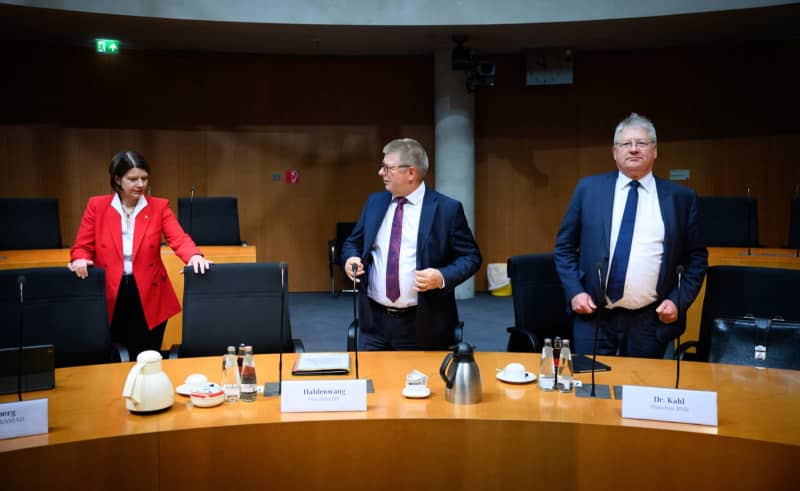An act of sabotage believed to be linked to Russia may have nearly caused a plane crash in Germany this year, intelligence services warned on Monday.
In the July incident, a package caught fire at a DHL logistics center in the eastern city of Leipzig, causing a cargo container to catch fire.
Thomas Haldenwang, the head of the domestic intelligence service (BfV), told lawmakers at a public hearing of a parliamentary oversight committee that only a fortunate coincidence had prevented the package from catching fire while on board a plane.
The package, which arrived in Germany from the Baltic region, is believed to have remained at the cargo center after the flight it was due to travel on was delayed, DPA has learned.
Haldenwang and other intelligence chiefs said Russian President Vladimir Putin had long labeled Germany an enemy of Russia.
The annual session in Germany’s lower house, the Bundestag, was attended by leaders of the country’s three intelligence services: the Federal Intelligence Service (BND), the Military Counterintelligence Service (MAD) and the Federal Office for the Protection of the Constitution (BfV). .
All three warned of a spike in Russian espionage, with Haldenwang saying the agencies had “observed aggressive acts by Russian intelligence services.” Russian espionage and sabotage efforts had increased “in both quantity and quality,” he said.
The BND’s Bruno Kahl, who is responsible for foreign intelligence, said: “The Kremlin saw the West, including Germany, as an adversary,” and Russia would be in a position to launch an attack on it by the end of the decade West to perform.
“Putin will test the Western red lines,” Kahl predicted, calling for unity and increased defense capabilities. Moscow would try to divide NATO before open military conflict emerged, he said.
Kahl also emphasized the restrictions on the activities of German intelligence services. The BND needed “significantly more operational leeway” to fulfill its task, he said.
MAD President Martina Rosenberg expressed concern that foreign agencies were attempting to spy on the Bundeswehr, Germany’s armed forces, with the aim of “discovering arms shipments to Ukraine, training plans or armament projects, or creating a sense of insecurity through acts of sabotage ‘.
Haldenwang described the pressure exerted by other governments on dissidents and opponents in Germany, mentioning China, Turkey and Iran.
In the case of Russia and China, it was enough that “different opinions were noted,” he said.
Iran’s Islamic Revolutionary Guard Corps (IRGC) used people linked to organized crime groups to spy on Jews, Israelis and Iranians opposed to Tehran’s government, he said.
While right-wing extremism currently posed the greatest threat to German democracy, the greatest threat to domestic security came from Islamist terrorism, Haldenwang said.
The Salafist jihadist group Islamic State – Khorasan Province was the main organization that tried to radicalize young activists so that they could act on their own. The group used social media services such as TikTok and Telegram to convey its propaganda, he said.
The current war in the Middle East has given impetus to this process, Haldenwang said. His office had succeeded in numerous cases in eliminating suspected terrorists in advance, he said. “Under no circumstances can these cases be counted on one hand,” the domestic intelligence chief said.
The parliamentary oversight panel meetings usually take place behind closed doors, but public hearings are organized once a year.









